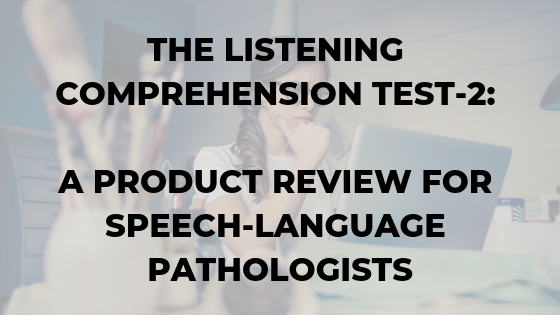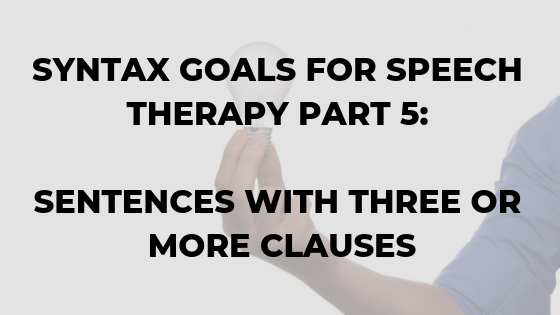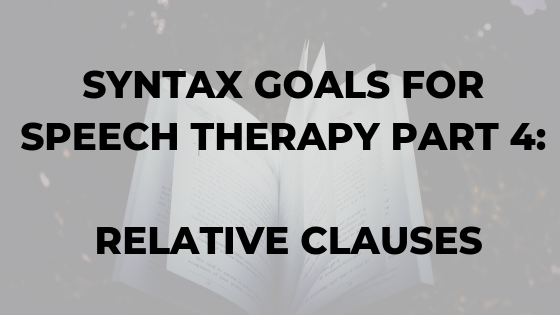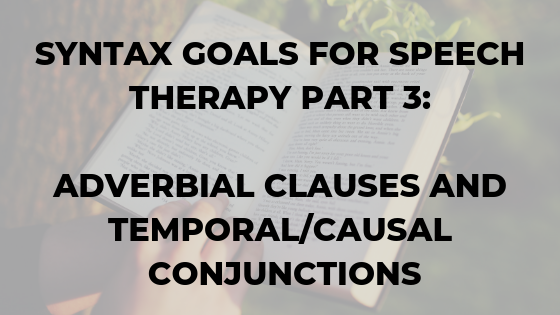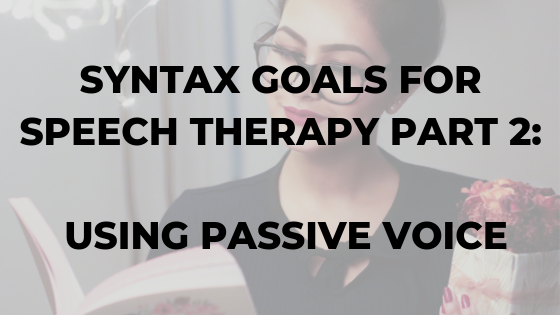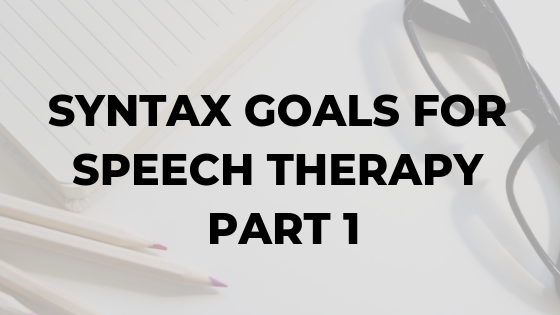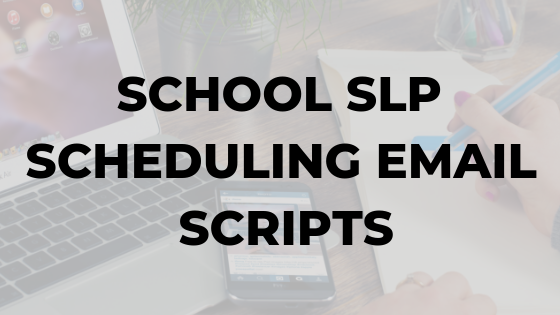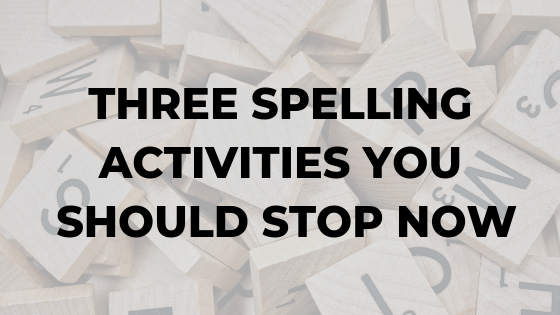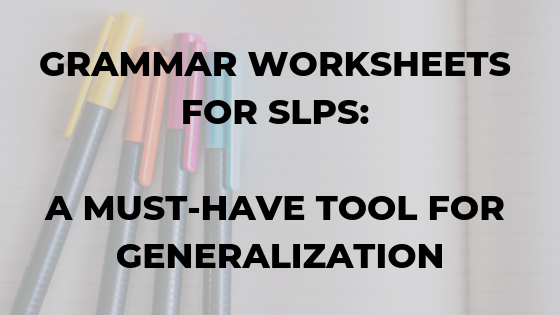Not a year goes by that I don’t see an inferencing goal for a student with language issues. It reminds me of a former student of mine, “John” (which I told you about in this last article) was no different. John was the “lazy and unmotivated” student who turned in sloppy written work with incomplete answers…
Blog
The Listening Comprehension Test-2: A product review for speech-language pathologists
What follows is an in-depth review of The Listening Comprehension Test-2 (Bowers, Huisingh, & LoGuidice, 2006); a staple evaluation tool if you’re an SLP treating school age language disorders. There have been many cases when this assessment has saved some of my students from falling through the cracks; and the case I’m about to describe…
Syntax Goals for Speech Therapy Part 5: Sentences with Three or More Clauses
Welcome to the final installment of the Syntax Goals for Speech Therapy series, where I break down how to write the best speech therapy goals for syntax that focus on high-priority skills to build listening and reading comprehension. In this article series, I’ve broken down four challenging sentence types and how to target them (described…
Syntax Goals for Speech Therapy Part 4: Relative Clauses
Welcome to the fourth installment of the Syntax Goals for Speech Therapy, where I’m breaking down difficult sentence types so you can walk away with an IEP goal bank for syntax and a set of solid syntax activities for speech therapy. The inspiration to write this series came from the constant questions I get about…
Syntax Goals for Speech Therapy Part 3: Adverbial Clauses and Temporal/Causal Conjunctions
This is the third installment in Syntax Goals for Speech Therapy, where I’ll be giving you some sentence structure goals for speech therapy. In the first part, I shared a “base goal” for syntax that defines the “big idea” and ensures that you have a goal you can measure. In the second article, I talked…
Syntax Goals for Speech Therapy Part 2: Using Passive Voice
Before we dive in to our second installment of Syntax Goals for Speech Therapy and add to that IEP goal bank I started for you, I’ve got a question for you. How many times have you gotten the dreaded language processing referral? It might go a little something like this: Teacher: My student sounds funny….
Syntax Goals for Speech Therapy Part 1
If you struggle to write syntax goals for speech therapy, what you’re about to read will make your life substantially easier (spoiler alert: it involves a mini-IEP goal bank). Do you have students who can’t get their ideas across and don’t “sound right” when they’re talking? Maybe something sounds “off”, disorganized, or incomplete…but you can’t…
School SLP Scheduling Email Scripts
In my last post about SLP survival, I promised you some school SLP scheduling email scripts, so today I’m delivering on my promise. These deceptively simple templates for emailing teachers are what I’ve used to communicate with teachers at the beginning of the school year, so I can set my schedule with as little stress…
Three Spelling Activities You Should Stop Now
As SLPs, we sometimes struggle to figure out what types of spelling activities we should be doing in speech therapy. Sometimes we wonder if we should be thinking about spelling words at all. I mean, shouldn’t the teachers be the ones doing all the spelling activities and picking out the spelling words? Well…yes they should….
Grammar Worksheets for SLPs: A must-have tool for generalization
Having a set of “staple” grammar worksheets for your therapy can be a huge time-saver. Most of us have them, and can probably think of a couple times these handy grammar worksheets or card decks have saved us when we’ve had to resort to last minute planning when we’ve gotten swamped. These appeal to a…

